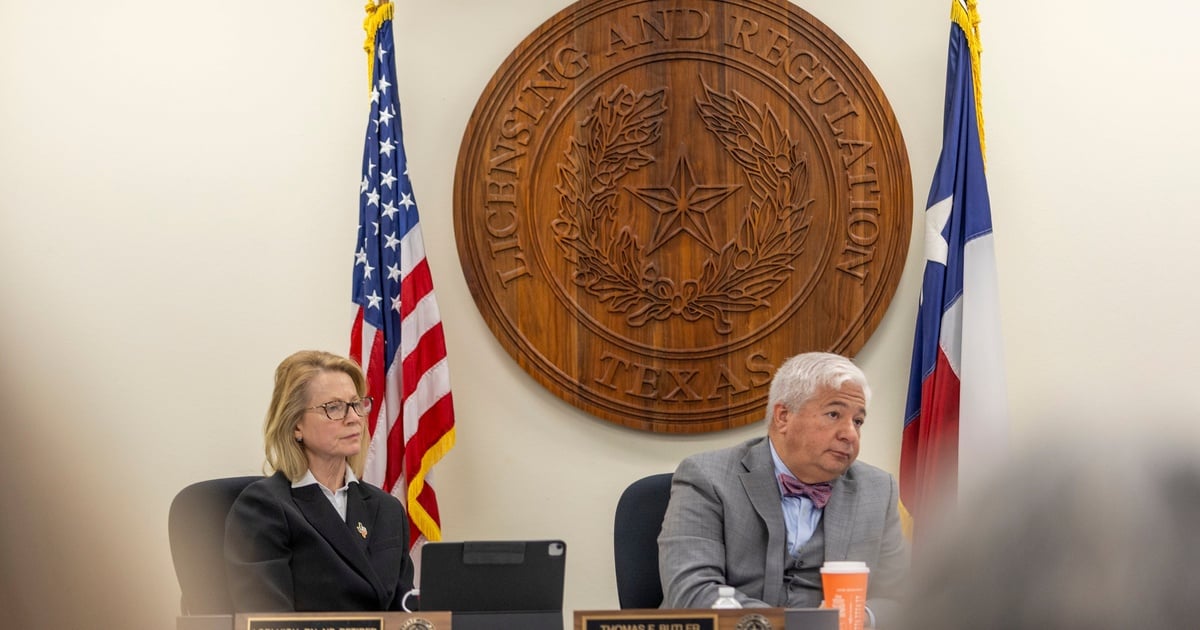The Texas Lottery, a fixture in the state’s revenue generation for over three decades, is undergoing a significant transformation. After a tumultuous period marked by controversies and legislative scrutiny, the Texas Lottery Commission is set to be abolished on September 1st. However, the lottery games will continue under the management of the Texas Department of Licensing and Regulation (TDLR). This transition marks a second chance for the Texas Lottery, with new leadership and stricter regulations aimed at ensuring transparency and preventing illegal activities. The move comes after concerns were raised about multimillion-dollar jackpots and alleged money laundering schemes, prompting legislative action to overhaul the lottery’s oversight.
The TDLR’s takeover signifies a fresh start for the Texas Lottery, with a focus on addressing declining sales, implementing new regulations, and restoring public trust. The agency is tasked with navigating the complexities of managing an $8 billion operation while ensuring that revenue continues to support Texas’ public schools. The transition involves onboarding nearly 300 lottery commission employees, overseeing thousands of retailers, and adapting to new legislative mandates. This article delves into the details of this significant shift, exploring the challenges and opportunities that lie ahead for the Texas Lottery under its new management.
TDLR Assumes Control of the Texas Lottery
On September 1, the Texas Department of Licensing and Regulation (TDLR) will officially take over the operations of the Texas Lottery, marking the end of the Texas Lottery Commission. This transition comes after the state legislature passed Senate Bill 3070, which mandated the transfer of lottery operations to TDLR. The move was a compromise after a proposal to completely end the lottery commission gained traction following controversies surrounding large jackpots and allegations of illegal online ticket sales.
According to Glenn Neal, the lottery transition director, the transition should be relatively smooth from an operational perspective. Most of the lottery commission’s employees will remain in their current positions, simply reporting to a new agency. However, the TDLR will face the challenge of integrating the lottery’s operations into its existing framework, overseeing nearly 300 employees and more than 20,000 lottery retailers.
New Legislative Mandates for the Texas Lottery
Senate Bill 3070, which led to the TDLR taking over the lottery, also includes several new regulations aimed at preventing illegal play and increasing transparency. These regulations include stricter limits on the number of tickets that can be purchased by one person and the criminalization of lottery ticket sales online by courier services. These measures were enacted in response to concerns about bulk ticket purchases and alleged money laundering schemes.
The new regulations aim to address issues that the lottery commission had been criticized for not reining in years before. One specific incident that drew scrutiny was a group’s purchase of 99% of the Lotto Texas draw game’s possible ticket combinations in 2023. This led to accusations that the lottery commission was aiding potential money laundering through “bulk purchases.”
TDLR’s Challenges and Opportunities
Courtney Arbour, the executive director of TDLR, acknowledges that the lottery is a significant undertaking, representing the largest transition the department has handled. With the addition of the lottery, TDLR’s staff will increase by 50%, and its budget will multiply sixfold. However, Arbour also sees this as an opportunity to revitalize the lottery and re-engage players.
One of the main challenges facing TDLR is the lottery’s recent underperformance. The Texas Lottery is on track to end the fiscal year with approximately $500 million less revenue than in fiscal year 2024, marking the second consecutive year of decline. This decline is attributed to significant decreases in Powerball and scratch ticket sales. TDLR will need to find ways to reverse this trend and increase revenue for the state’s public education fund.
Stakeholder Perspectives on the Lottery Transition
TDLR’s transition team has been meeting with various stakeholders, including retailers and lottery players, to gather input and address concerns. One such meeting was with Dawn Nettles, a longtime Texas lottery watchdog and publisher of the Lotto Report. Nettles is cautiously optimistic about TDLR’s handling of the lottery but notes that staff may not yet be fully aware of the intricacies of the state games.
Nettles believes that TDLR’s first challenge will be to address the lottery’s recent underperformance by evaluating the number of draws offered and making necessary rule changes. She also emphasizes the importance of the lottery’s local economic impact and its significance to Texans.
Sunset Review and Future of the Texas Lottery
TDLR’s performance in managing the Texas Lottery will be reviewed by the state’s Sunset Advisory Commission in 2029. Without further legislation, the lottery would be fully abolished on September 1, 2029. This sunset provision adds pressure on TDLR to effectively manage the lottery and demonstrate its value to the state.
To ensure long-term success, TDLR is establishing a lottery advisory committee and a bingo advisory committee. These committees will provide guidance and feedback to TDLR on lottery operations and regulations. Appointments to these committees will begin at the licensing commission’s next meeting on September 4.
Conclusion: A Second Chance for the Texas Lottery
The Texas Lottery’s transition to the Texas Department of Licensing and Regulation marks a significant turning point for the state’s lottery operations. With new leadership, stricter regulations, and a renewed focus on transparency, the lottery has a second chance to regain public trust and increase revenue for Texas’ public schools. The TDLR faces challenges in addressing declining sales and implementing new legislative mandates, but also has opportunities to revitalize the lottery and re-engage players.
The success of this transition will depend on TDLR’s ability to effectively manage the lottery, address stakeholder concerns, and demonstrate its value to the state. The upcoming Sunset Advisory Commission review in 2029 will be a critical assessment of TDLR’s performance and will determine the future of the Texas Lottery. As the lottery embarks on this new chapter, Texans will be watching closely to see if it can live up to its promise of generating revenue for education and providing entertainment for players.

Leave a Reply